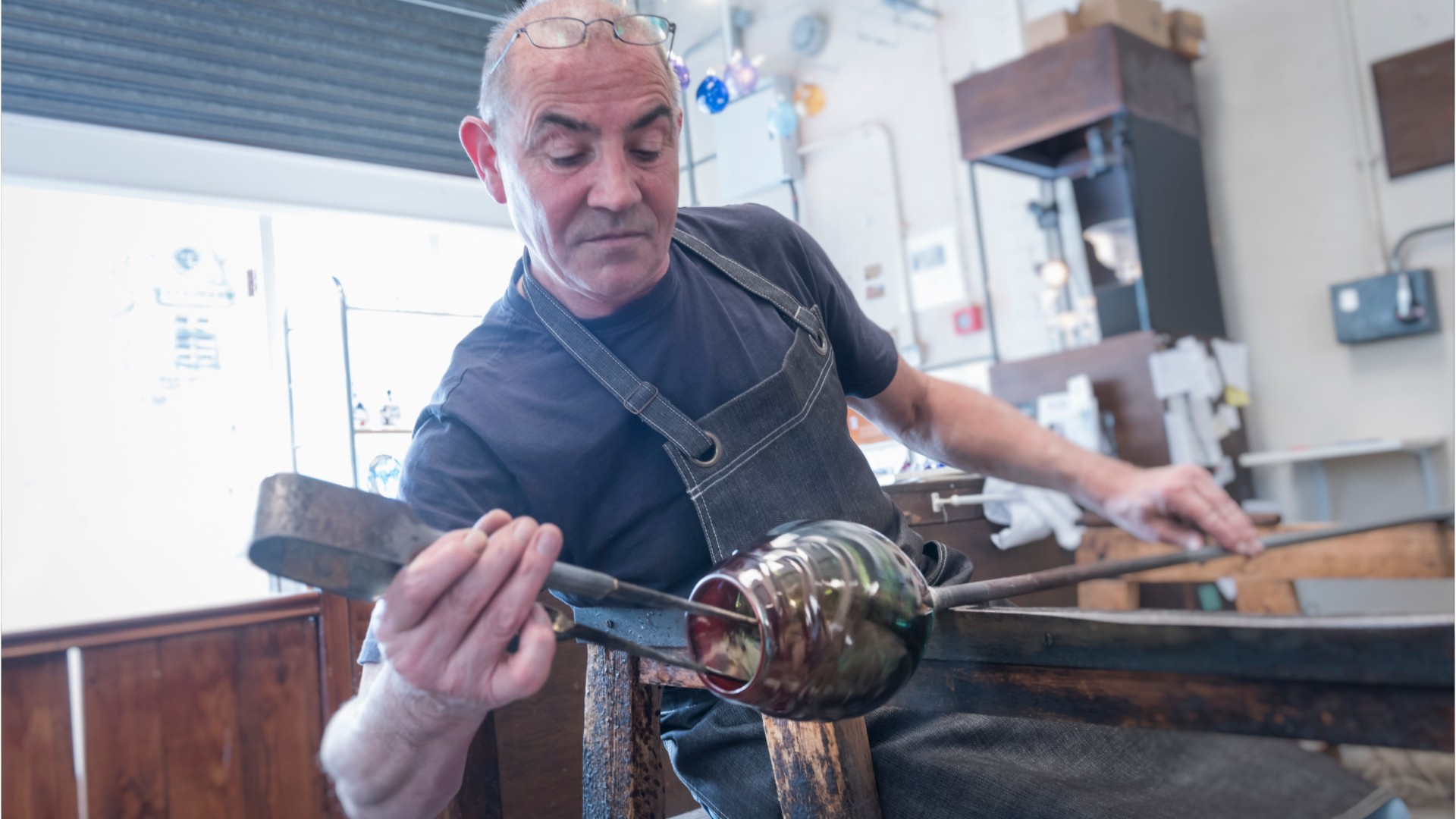Molders, Shapers, & Casters
Caster, Mold Mechanic, Molder, Molding Line Operator
 Select a military branch to see samples.
Select a military branch to see samples.
Aircraft Metals Technology; Aircraft Metals Technology Apprentice; Aircraft Metals Technology Craftsman; Aircraft Metals Technology Helper; Aircraft Metals Technology Journeyman
Allied Trades Specialist
No similar titles were found.
No similar titles were found.
Machinery Repairman
No similar titles were found.
What they do:
Mold, shape, form, cast, or carve products such as food products, figurines, tile, pipes, and candles consisting of clay, glass, plaster, concrete, stone, or combinations of materials.
On the job, you would:
- Read work orders or examine parts to determine parts or sections of products to be produced.
- Trim or remove excess material, using scrapers, knives, or band saws.
- Brush or spray mold surfaces with parting agents or insert paper into molds to ensure smoothness and prevent sticking or seepage.
Knowledge
Manufactured or Agricultural Goods
- manufacture and distribution of products
Engineering and Technology
- mechanical
Skills
Basic Skills
- listening to others, not interrupting, and asking good questions
Problem Solving
- noticing a problem and figuring out the best way to solve it
Abilities
Hand and Finger Use
- keep your arm or hand steady
- hold or move items with your hands
Controlled Movement
- quickly change the controls of a machine, car, truck or boat
- use your arms and/or legs together while sitting, standing, or lying down
Personality
People interested in this work like activities that include practical, hands-on problems and solutions.
They do well at jobs that need:
- Attention to Detail
- Dependability
- Cautiousness
- Integrity
- Perseverance
- Achievement Orientation
Technology
You might use software like this on the job:
Spreadsheet software
- Microsoft Excel
Electronic mail software
- Microsoft Outlook
Computer aided manufacturing CAM software
- Mastercam computer-aided design and manufacturing software
Education
Education: (rated 2 of 5)
Job Outlook
Bright
New job opportunities are very likely in the future.
Explore More
- Cutting & Slicing Machine Setters, Operators, & Tenders
- Extruding, Forming, Pressing, & Compacting Machine Setters, Operators, & Tenders
- Foundry Mold & Coremakers
- Grinding & Polishing Workers, Hand
- Molding, Coremaking, & Casting Machine Setters, Operators, & Tenders, Metal & Plastic
You might like a career in one of these industries:
See more details at O*NET OnLine about Molders, Shapers, & Casters.





